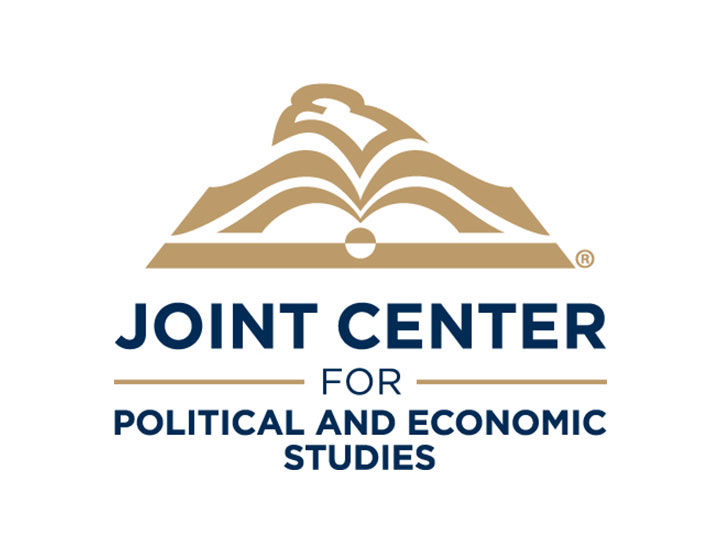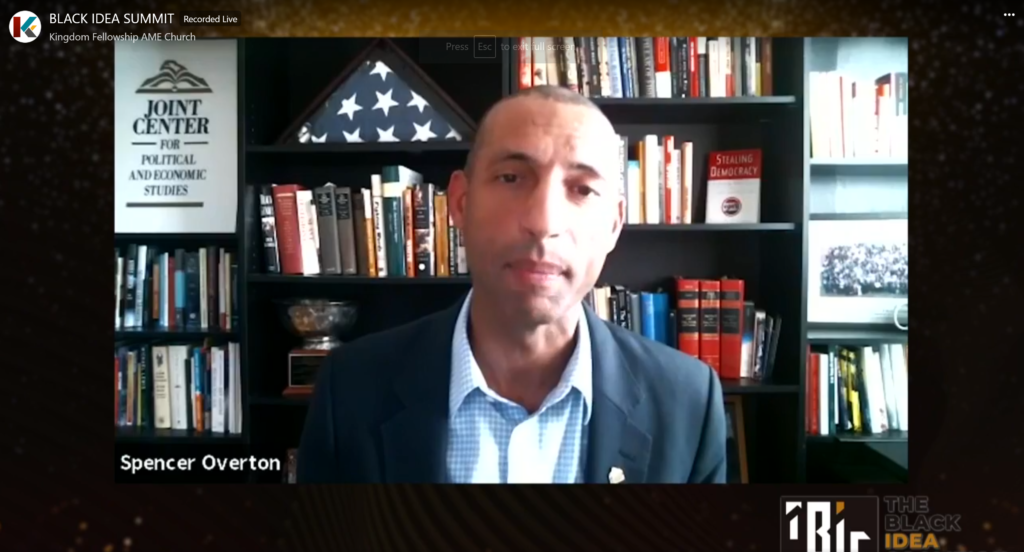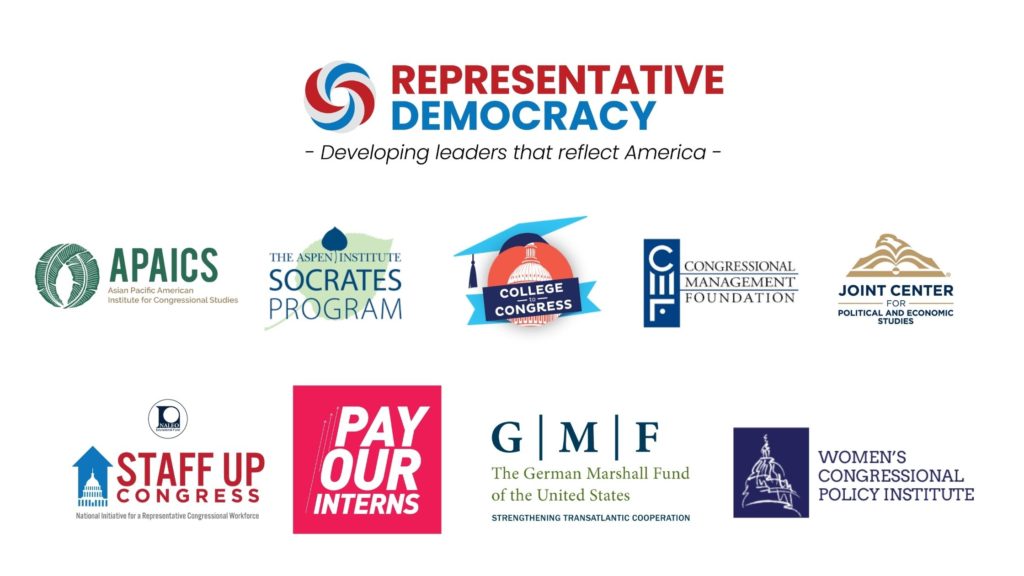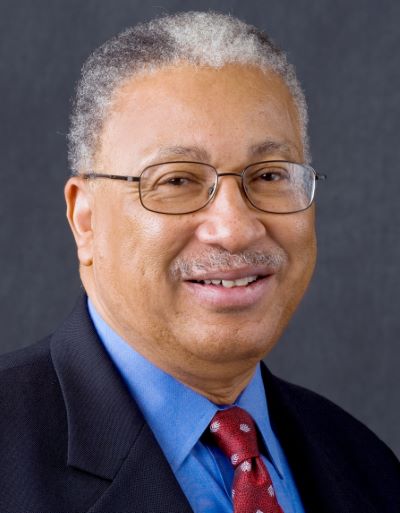Joint Center Updates

Joint Center News: September 2020
This is our regular monthly newsletter, which reviews the Joint Center’s work over the past month.
Economic Studies

Joint Center President Spencer Overton joined The Atlantic Festival for Equity, Inclusion, and a New World of Work, a panel produced by AARP. Spencer spoke about how digital technologies transform work including the increased use of autonomous robots, the significance of digital skills, and remote work. Other panelists included AARP Global Thought Leadership Senior Vice President Jean Accius, The Aspen Institute Future of Work Initiative Executive Director Alastair Fitzpayne, and AARP Financial Resiliency Programming Vice President Susan Weinstock. AARP Chief Operating Officer Scott Frisch provided keynote remarks.
The Joint Center submitted an analysis opposing the Trump Administration’s attempt to prod the Federal Communications Commission to adopt rules that would discourage platforms like Twitter and Facebook from removing objectionable material—like disinformation that suppresses Black votes or facilitates housing or employment discrimination.
Joint Center Vice President Jessica Fulton joined Latinos for Secure Retirement’s 9th Annual Retiring with Dignity Summit for a panel entitled Social Security & Civil Rights: A Social Contract. During the discussion, Jessica emphasized the importance of maintaining a robust and well funded social security system to support Black and Latina/o workers and families.

The Joint Center hosted a Twitter chat with experts on how the COVID-19 pandemic is affecting Black workers and what policymakers, allies, and others should be doing about it. Experts included Joint Center Vice President Jessica Fulton, Center for American Progress Senior Economist Gbenga Ajilore, American University Associate Professor of Public Administration and Policy Bradley Hardy, and Groundwork Collaborative Managing Director of Policy & Research Janelle Jones.
The Joint Center signed a letter, addressed to Senate Judiciary Committee Chairman Lindsey Graham (R-SC) and Ranking Member Dianne Feinstein (D-CA), urging them to oppose S.4632, the “Online Content Policy Modernization Act.” As stated in the letter, the bill would “deter platforms from fact checking misleading information about voting and would interfere with social media services’ ability to combat the spread of mis- and disinformation on their sites.” The letter, led by Center for Democracy & Technology, include signatures from Access Now, Accountable Tech, ADL, Common Cause, Electronic Frontier Foundation, Free Press Action, Maplight, Multicultural Media, Telecom and Internet Council (MMTC), National Coalition Against Censorship, National Hispanic Media Coalition, National Urban League, New America’s Open Technology Institute, Open MIC (Open Media & Information Companies Initiative), Protect Democracy, Public Knowledge, Texas Progressive Action Network, and Woodhull Freedom Foundation.
Jessica provided comments on the experience of essential Black and Latina/o workers in New America’s Unpacking Inequities in Unemployment Insurance report, noting “[t]hese workers deserve to feel safe at work, and when they can’t find work that keeps them safe, they still deserve to have the kinds of stable incomes that will allow them to plan for and afford expenses like food and rent.” The report shows how long-standing inequities in the unemployment insurance system have disadvantaged Black and Latina/o workers during the COVID-19 pandemic. New America hopes policymakers will use the research “to broaden the type of experts they invite to the table when creating policy.”
The Joint Center is proud to announce that Jessica will serve as a member of Partnership on AI’s AI Shared Prosperity Initiative Steering Committee along with several technologists, advocates, and social scientists. The steering committee will craft a research agenda focused on building concrete frameworks that guide AI development to be economically inclusive by design.
Spencer joined Alabama Pro-Growth Policy Conference, which convened thought-leaders and policymakers including Senator Doug Jones (D-AL), Stockton Mayor Michael Tubbs (D-CA), Congresswoman Terri Sewell (D-AL), and Equal Justice Initiative Founder Bryan Stevenson. The session focused on the COVID-19 pandemic and rural economic development in Alabama.
In an op-ed for Nationswell, Joint Center President Spencer Overton and Lumina Foundation Vice President of Future of Learning and Work Chauncy Lennon explain why employers should cover the cost of training to help workers adapt to quickly changing work environments.
Jessica participated in the tweetstorm in support of the release of Black Women Best: The Framework We Need for an Equitable Economy, a brief that provides a framework for how policymakers can “center Black women in our economy.”
The Joint Center’s analysis, Expand Internet Access Among Black Households, was cited in Brookings Institution’s piece explaining three possible solutions to the lack of internet access for Americans with low-incomes.

Spencer joined Kingdom Fellowship AME’s Black Idea Summit to discuss how systemic inequality has plagued Black communities throughout history, and has been exacerbated by the COVID-19 pandemic.
Joint Center Board Member and Mehlman Castagnetti Rosen & Thomas Principal Paul Thornell joined a panel of experts at the Brookings Institution-Georgetown Law event, “Where are the Black financial regulators?” to discuss the “absence of African Americans in financial regulation and the drivers behind it.” Other panelists included Georgetown Law Professor Chris Brummer (who presented findings from his latest research on this topic), University of Tennessee at Knoxville Haslam College of Business Professor Harold A. Black, Former Commissioner of the U.S. Commodity Futures Trading Commission Sharon Y. Bowen, and Minneapolis Federal Reserve President Neel Kashkari. U.S. House Financial Services Committee Chair Maxine Waters (D-CA) provided keynote remarks.
Political Studies

The Joint Center joined the newly launched coalition, Representative Democracy. The coalition’s mission is “to create an eco-system of diverse, leadership talent in Congress, from interns to senior staff, that will strengthen our governing institutions as we seek to build a more equitable country.” Other partners include the Asian Pacific American Institute for Congressional Studies, The Aspen Institute’s Socrates Program, College to Congress, Congressional Management Foundation, NALEO’s Staff Up Congress, Pay Our Interns, Transatlantic Inclusion Leadership Network’s German Marshall Fund of the United States, and Women’s Congressional Policy Institute. The Joint Center is excited to continue our work in encouraging more diversity among congressional staff as part of this new initiative.
ABC News cited the Joint Center’s report, Racial Diversity Among Top Staff in Senate Personal Offices, in an analysis on an increase of Black “firsts” including New Jersey Supreme Court’s first Black female justice, Fabiana Pierre-Louis. In the article, ABC News reports that Congress “continues to be a white-dominated workplace from the top to the bottom” by citing the Joint Center’s research which found that just 11% of top staff members in U.S. Senate personal offices are people of color.
The Joint Center’s report, The Black Vote in 2004, was cited in a Chicago Tribune column explaining African Americans’ relationship with Republican and Democratic parties over the past century. The column cites: “[t]he switchover [from Republican to the Democratic Party] occurred in 1936 when Democratic President Franklin Roosevelt was reelected with 71% of the Black vote, largely on the strength of his New Deal economic plan.”
In a piece for the New York Times, Brennan Center Senior Fellow Ted Johnson also cited statistics from a previous Joint Center report entitled Blacks and the 2012 Democratic Convention, stating that “[f]rom 1964 to 2008, according to a report by the Joint Center for Political and Economic Studies, an average of 88 percent of Black votes went to the Democratic Party’s presidential nominees, a number that increased to 93 percent in the last three presidential elections.”
BET, the National Urban League, and more than 40 partners held National Black Voter Day on Sept. 18 to encourage African Americans to register to vote.
Black Voters Matter Fund announced a voter outreach initiative across 12 key Southern and Midwestern states to “educate, engage, and mobilize Black voters for the November election.”<
Podcasts

On his podcast, WashingTECH Host Joe Miller spoke with New York University Vice Provost & Incoming WashingTECH Board Chair Charlton McIlwain about the internet and racial justice. The podcast is available on Apple Podcasts, Spotify, and WashingTECH’s website. Listen here.
Fordham University Law Professor Olivier Sylvain joined The Knight Foundation’s The Future of Democracy, hosted by Knight Foundation Chief Program Officer Sam Gill, to “examine online speech and the policies surrounding it.”
Remembering James S. Jackson

The Joint Center mourns the passing of James S. Jackson, the founder of the Program for Research on Black Americans at the University of Michigan, who is credited with changing the study of Black America by exploring the “complexities within the Black population” rather than focusing on “interracial comparisons.” James S. Jackson’s full obituary can be found here.
Now Hiring
The Aspen Institute is seeking a Communications Coordinator. Candidates must have proven ability to break through the noise, strong instincts, and the ability to respond rapidly and catch the moment with the right angle. The Communications Coordinator must be ready to use a variety of social and traditional media tools and channels creatively and strategically. The position requires someone who leads from a collaborative perspective and understands the role of communications in policy, system, and mindset change. This position is funded by Democracy Fund and is a one-year, results-oriented position focused on supporting and building the Representative Democracy coalition and amplifying the collective work of Capitol Hill leaders that are representative of America.
In Case You Missed it
Microsoft’s new community skills program will award unrestricted grants of up to $100,000/year for three years to up to 50 Black- and African American-led nonprofits that provide digital skills and workforce development to Black and African American communities. Learn more and apply by September 30 here.
Supporting the Joint Center
The Joint Center is participating in the Donor Advised Fund #HalfMyDAF HEROES program. With each monetary nomination, the Joint Center earns a better chance to be one of the 150 nonprofits to receive a matching grant of up to $25,000. The deadline is September 30. Learn more here. Thank you for your support.

